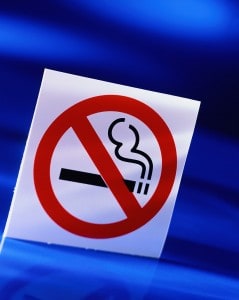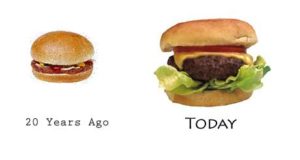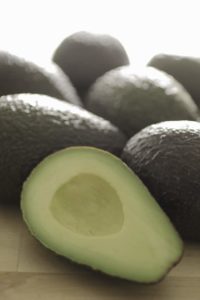A recently published study is going to fuel the hysteria over high-fructose corn syrup. It’s a terrific study. But, contrary to the headlines you are sure to see over the next days and weeks, it does NOT prove that high fructose corn (HFCS) syrup is the cause of the obesity epidemic. Let’s take a closer look.
Researchers at the University of Florida found that rats who were fed a diet that was very high in fructose eventually became resistant to the hormone leptin. Leptin is a hormone that regulates your appetite and disposition toward weight gain. In the second half of the study, they switched the leptin-resistant rats to a high-calorie (high-fat) diet. The rats ate a lot more and gained a lot more weight than rats who had not been on a high-fructose diet. (Read more about the study: “Fructose hampers hormone that controls appetite.“)
Now, what does this tell us about the effects of high-fructose corn syrup on humans? Very little.
Aside from the obvious issue (the study was done in rats, not humans), the study had absolutely nothing to do with high fructose corn syrup. The diet that brought about leptin resistance was about 60% fructose, and contained no other form of sugar. The typical (awful) American diet contains about 35% sugar, about half of which (roughly 17%) is in the form of fructose.
Incidentally, if every bit of HFCS in the food supply was replaced by regular old cane sugar, our fructose intake would still be around 17%. That’s because high fructose corn syrup contains about the same amount of fructose as sugar.
Like the best research studies, this one poses far more questions than it answers. For example, I’m dying to know whether you’d get the same results at 50% fructose. Or 40% or 30%. What’s the threshold at which the effect starts to set in?
Secondly, I’d love to know whether you’d get leptin resistance with similar amounts of glucose or sucrose? In other words, how much of this effect is specific to fructose and how much is just sugar? What’s more significant: the amount of total sugar in the diet or the amount of fructose? How does dietary fat affect things? (In the study, the rats ate an extremely low-fat (5%) diet and the fat was lard.)
I imagine that researchers are queuing up to design studies that will answer these questions and more. (And we’re still only talking about rats…)
Those who read this blog (or listen to my podcast) know that I think the hysteria over high-fructose corn syrup is misplaced. We should be alarmed by the amount of sugar in the American diet and what it is doing to our health. I think it probably is directly connected to our rising rates of obesity, whether through leptin resistance or other means. But I don’t think it’s worth worrying about high-fructose corn syrup, per se, while we’re still getting 35% of our calories as sugar.
This whole thing reminds me a little of people who are freaking out about gas prices and dependency on foreign oil. They’re trading in their cars for models that will improve their gas mileage from 27 to 30 mpg. But it never occurs to them to drive fewer miles.
Here’s what we all agree on
I am sure that large quantities of fructose will cause health problems in rats and humans. I’m pretty sure that large quantities of any form of sugar will do that. Of course, the specific problems that develop will vary depending on what type of sugar you’re over-consuming. Fructose is hard on the liver while glucose is more challenging to the pancreas.
But rather than argue about which form is more dangerous, what about working the problem from the other end of the equation? I”m talking about the “large quantities” part of the sentence.
Eat less sugar and you probably don’t need to worry about HFCS
The World Health Organization recommends that you limit your intake of added sugars to 10% of calories. They’re not talking about sugars that are found naturally in whole foods, like fruit or milk. They’re talking about refined sugars in things like candy, baked goods, soft drinks, and condiments.
For most Americans, this would mean cutting their sugar intake by two-thirds. Whether or not HFCS is really that much worse than other forms of sugar (I’m still not convinced it is), I’m pretty sure that if we simply cut our consumption to a reasonable level, it simply wouldn’t matter.
Call me crazy.
 Q. I have a friend who just quit smoking. He’s started to gain the typical weight and went into his local GNC yesterday to get some supplement that’s supposed to speed up his metabolism. He already has a fairly good diet. I told him he might be better off just letting his metabolism balance itself out, rather than substituting one stimulant for another. Any ideas on how he can naturally adjust better?
Q. I have a friend who just quit smoking. He’s started to gain the typical weight and went into his local GNC yesterday to get some supplement that’s supposed to speed up his metabolism. He already has a fairly good diet. I told him he might be better off just letting his metabolism balance itself out, rather than substituting one stimulant for another. Any ideas on how he can naturally adjust better? 



 Q. I’m a 30-year-old man and I’m struggling to gain weight. I exercise 5-7 hours a week. My health is good. I really enjoy vegetables and other healthy foods, but it’s hard to get enough calories without adding soda and dessert to my meal of chicken salad, for example. I know sugar causes a host of bad health effects, but what alternatives are there? How can I get more calories without causing collateral damage?
Q. I’m a 30-year-old man and I’m struggling to gain weight. I exercise 5-7 hours a week. My health is good. I really enjoy vegetables and other healthy foods, but it’s hard to get enough calories without adding soda and dessert to my meal of chicken salad, for example. I know sugar causes a host of bad health effects, but what alternatives are there? How can I get more calories without causing collateral damage?